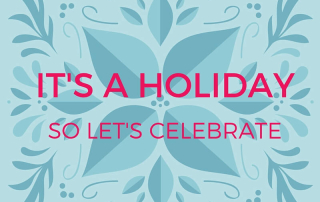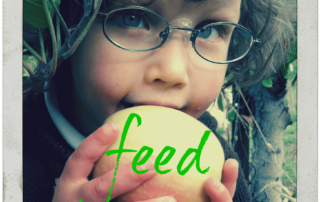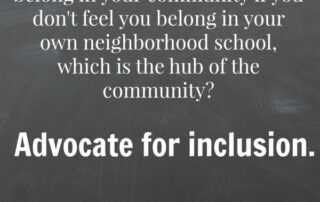Outsmarting the Hard of Autism to Attend Live Theater
I love musicals and other live theater performances. About five years ago I googled the name of the performing arts theater in my town along with “season tickets” and was delighted to discover the possibility for a whole new adventure! My friend Marilyn and her adult son Jimmy (who also likes musicals and has autism) decided they would like to do this too. Each year I am the person who sends out the information on shows and orders the tickets for all three of us. Along the way we had to outsmart the hard of our autism and figure out
High-Functioning or Low-Functioning?
In this life I am missing the ability to go out into the world and just be accepted for my natural autistic self. I must inhibit so many of my natural responses just to fit in enough for others to allow me a place in the world. I have discovered that to have a place in this world I need to fit into it in a way that makes sense to the majority. For me, this isn't a good or a bad thing - just merely the way it is. Fitting into the world is something I need to balance
Autism and Holiday Schedules
Autism and Holiday Schedules by Judy Endow As an autistic getting through the holiday time can be quite tricky. As an autistic parent with children who had different needs it was even trickier. Routine and structure can go a long way! They anchor the days that can otherwise be perceived by an autism neurology as totally chaotic, which in turn, often leads to being overwhelmed and experiencing meltdowns. 1. Start by creating a visual schedule. You can simply use paper and pencil or use an iPad or computer to make your visual schedule. Words can
Communication Supports for Speaking Autistics?
As an autistic, I know first hand how my communication abilities are different from the neuro-majority people around me. Most people do not understand my differences because I can speak. On the surface my communication abilities appear normal. This make it very difficult for people to understand when I need accommodations they are just that – accommodations – not personal preferences. For example, even though I can speak to crowds of thousands of people my neurology does not permit me to engage in telephone conference calls in a meaningful way. The most I can do is listen, but after a
Why I Don’t Like “Awareness”
Awareness campaigns of disabilities are only effective if they are planned and run primarily by the groups that are the subjects of the campaign. This is because such campaigns are not “awareness”, but “acceptance” campaigns. We welcome support, with focus on respect, equality and access. We don’t need “awareness” of deficits and tragic rhetoric.
Autism and Eye Contact
A challenge I am continually faced with as an autistic adult is the misinformed presumption and resulting behavior of neurotypical people when I do not look at them the in way they expect, want or demand of me. It is challenging because society has put the onus on me to change. Often it does not matter to others why I am different. They just want me to stop being different. Recently I was told directly, “If you want to be treated like a real person then act like one!” Eye contact can be hard for autistics for a variety of
Attitudes – Information and Education
This is especially directed at parents, family members and all who spend a lot of time with disabled children. It also applies to adults, even if the way things happen when an adult is diagnosed or needs supports are different from how they happen with children. But we, disabled adults, also deserve to have supportive and informed people assisting us in navigating and participating in the world. When a child is diagnosed with a disability, or born disabled, it is said that parents, and family members, grieve. That's probably because the general perception of any disability is a negative one.
Attitudes – Grading People
Parents and family of disabled people should start demanding that everyone who is part of their children lives stops using functioning labels. We don’t need to be graded. We already have value.
Attitudes – Communication
Communication is not only speaking, typing, texting or signing. Communication is also being able to listen and understand, being accommodated to make interaction possible.
Attitudes – Introduction
When you are disabled there is a lot going against you. Not that disability is the worst thing someone can experience. It is not. Disability can be hard and some things can be very difficult to deal with. Some of us need medication and managing this can be difficult; some of us experience pain and this can be energy draining; others might have trouble with sensory processing; some might even need hospitalization from time to time. Different disabilities require different approaches, and different types of accommodations. What non-disabled people should remember is that we either learn how to live as
Fractured Vision: One Autistic Phenomenon
I started painting with acrylics in 2012. I wanted to use that medium to illustrate aspects of my autism. To date I have written several articles and books along with speaking in three countries about aspects of autism. Painting is one more way to explain some of the nuances of autism to those who might be interested. Painting allows me to show perceptions of the world that I see with my eyes as delivered through the neurology of my autism. I match up what I see with the colors and movements of paint on canvas paper. I have not taken classes
Autism, Growing Up and Defining Friends
As an autistic, I have difficulties in the social arena in a multitude of ways. This was especially true during my growing up years. Even today as an adult, automatic social understanding is not my strong suit. I am, however, able to continually learn new things that enable me to do and be all I want in this world. Today, in my professional work I am able to provide some input to a variety of organizations and schools in regards to individuals with an autism label. One thing I consistently see regardless of where I go is the practice of
The Benefits of Real Food
Guest post from Chasing the Spring's Dani Johnson on the life changing benefits of a blenderized diet made for her daughter. We were drawn to the great recipes Dani shares as well as her experience of learning from adult g-tube users.
Autism, Airports and Lifelong Learning
For most of my life airports have befuddled me. It didn’t so much matter earlier in my life because the only time I used an airport was to go to visit my parents in another state. Back then, before we had the heightened security of today, people were allowed to meet passengers as they stepped off the plane which allowed me to simply follow them through the airport without needing to concern myself with the confusion all around me. In My 40’s Then, airport security changed. People picking up passengers could no longer go through the security checkpoint. I
Autism and Psychiatric Diagnoses
At different times during my growing up and even during my adult years autism wasn’t something people knew much about. I often came in front of mental health professionals. It is important to know that if you go to a mental health professional or take your child to a mental health professional in all probability you will walk out with a diagnosis of a mental condition as found in the DSM-5 – otherwise known as the Diagnostic and Statistical Manual of Mental Health Disorders In my adult life I obtained a master’s degree in social work. I did clinical work
@sesameworkshop This Autistic Wants to Say
Today we #EducateSesame and ask Sesame Workshop to listen to Autistics, to respond to our concerns and to end their partnership with Autism Speaks.
Is Autism a Disability or a Difference?
So many ideas in the larger autism community often become a debate. As an autistic this black-or-white, choose-your-side sort of thinking is very neurologically friendly to me. I like clear choices. But I also believe we are often unwittingly duped into believing we need to choose a side only because the idea is presented as a dichotomous choice. “Is autism a disability or a difference?” is one of these questions posed as a dichotomous choice in the autism community. The way the question is posed gives the impression that there is one correct answer. When Autism is a “Difference” Many
Autistic Pride
I am proud of being Autistic And of my Autistic friends I am proud of young Autistics Who have Autistic pride They amaze me I am proud of young Autistics Who are discovering themselves They are learning to understand the world Through creative Autistic eyes They make me smile Young Autistics showering us with love Bonding, sharing, exploring and laughing With words, gestures and looks Their Autistic selves leading the way They lead their own way Henry stands up for his right to be We follow his lead and stand with him He teaches the meaning of never giving up
The Importance of Opportunity
Dillan Barmache, a 14 year old autistic student, delivers his powerful 8th grade commencement speech using his iPad and brings the crowd to their feet.
Losing an Autism Diagnosis
I am an almost 60-year-old autistic woman who can navigate the world in a way that surprises some people when they find out I have autism. My teen years were spent in an institution because people did not know what to do with my “behaviors” or with me. Today I am a self-employed author, speaker, consultant and artist with a master’s degree in Social Work. Question: Did I lose my autism diagnosis? Official Answer: Yes and No No, an Autism Diagnosis Cannot Be “Lost” Technically, once a person is diagnosed with anything that diagnosis becomes part of their medical records.
Henry
Some call him a kid Others say he is a young man But whatever you call him You need to know this: He is courageous Brave and resilient He will fight and he will win It can be a fight for his rights When enemies come disguised as condescension It can be a fight for his dreams He will mobilize an army of friends To Stand With Him He is an example to many He showed other students the possibilities Henry does not fight for himself He is changing perceptions, changing the world Henry is a leader
Cry Me a River, Katrina Percy. Justice for LB!
I originally wrote this piece for the blog 107daysofaction.wordpress.com. I asked for permission to reprint it to help raise awareness on this side of the Atlantic about the story. If you'd like to get involved with Justice for LB and 107 Days of Action, please click here. I've recently been made aware of the story of the death of a young autistic man in the UK that's not getting any press that I'm aware of in the U.S. or Canada. I'd like to tell you Connor Sparrowhawk's story. Connor Sparrowhawk, known as "Laughing Boy" or "LB" to his friends and
Skunk Hair, Autism and Social Understanding
There is a saying, “love makes the world go round,” but for real it is NOT love. Instead, it is hidden curriculum that makes the world go round! Hidden curriculum is all that social information that most people know even though they were never actually taught it. An example is the rule “don’t pick your nose” with the hidden curriculum being it is perfectly fine to pick your nose as long as nobody sees you doing it. Many people with autism have difficulty with hidden curriculum. Their brains are not wired to allow them to automatically pick up this untaught,
SWIFT on NPR’s “All Things Considered”
by Dr. Mary Schuh: SWIFT Center Recently, National Public Radio’s (NPR) “All Things Considered” aired a story on inclusive education. The story featured Presidio Middle School in San Francisco and SWIFT Filmmaker, Dan Habib. While Presidio Middle School should be applauded for their efforts to educate students with and without disabilities, what was portrayed by NPR would by no means be considered an inclusive school. Students with disabilities placed in a separate basement class learning functional “survival” skills does not make for an inclusive experience. How can students with disabilities learn important “survival skills” such as communication, literacy, following typical
Inclusion – How it Works Best for This Autistic
As an autistic, I sometimes feel boxed in by the best practice strategy of inclusion. Please don’t get me wrong – inclusive education is a very good thing! Historically, people with disabilities were not given access to public education. Then, over time, laws changed. Today we have special ed classrooms in our schools and the progressive schools practice inclusion. Today’s Inclusive Education Inclusion means that all the students get to learn in the general ed environment. Instruction is differentiated while physical, sensory, emotional and every other need of each student is taken into consideration so that all students learn together,
Dan Habib: Disabling Segregation
Dan Habib's Tedx Talk on the importance of inclusion, belonging and disabling segregation. Habib is the creator of the award winning documentaries, Including Samuel, Who Cares About Kelsey, Restraint and Seclusion: Hear Our Stories, Thalia and other disability related subjects . Check out Dan's Tedx Talk on the benefits of inclusive education for students with and without disabilities. Picture yourself back in your grade school classroom. I don't care if it's elementary school, middle school, high school. Just put yourself back there for a second. Look around the classroom. Do you see any kids with and without disabilities studying together




